Introduction
Warsaw University of Life Sciences (SGGW), Polish for "Szkoła Główna Gospodarstwa Wiejskiego", is the largest agricultural university in Poland and a modern institution of higher learning in the field of life sciences.
Overview
Number of students: 16,443 in 2018.
Number of faculty and staff: More than 2,600 employees, including more than 1,200 academic educators.
History and founding
The origins of the Warsaw University of Life Sciences can be traced back to September 23, 1816, when the Institute of Agronomy was founded in the town of Mariemonte (now in the Bilany district). After Poland's independence in 1918, the Institute of Agronomy was nationalized in 1919 and renamed to its current name. During this period, it has undergone many changes and developments, such as the addition of horticultural research in 1921 and the transfer of the Department of Veterinary Medicine from the University of Warsaw in 1952, gradually forming the scale of today's multidisciplinary comprehensive university.
School Strength
Faculty: There are more than 1,200 academic educators, including experts and scholars with profound attainments and rich teaching experience in agriculture, life sciences, economics, humanities and other fields. They provide students with high-quality education and guidance, and actively participate in scientific research projects to promote the development of disciplines.
Scientific research results: The school's scientific research results have a certain influence in Poland and even internationally. It has achieved many important research results in the fields of agricultural technology, biotechnology, food science, etc., and actively transformed scientific research results into practical applications, contributing to the innovation and progress of industries such as agriculture, food economy and medicine. In 2023, 13 researchers from the school ranked among the top 2% of scientists in the world.
International cooperation: Since 2005 Since 2005, it has become a member of the European Life Sciences Alliance (ELLS), actively cooperates and exchanges with universities and scientific research institutions around the world, participates in international scientific research projects, provides students with broad international exchange and learning opportunities, and enhances the school's international influence.
Nature of the institution
Public university.
Educational philosophy
Focus on cultivating students' practical ability and innovative spirit, and is committed to combining theoretical knowledge with practical application, so that students can have the ability to solve practical problems in the fields of agriculture, life sciences, etc., and cultivate professionals with a high sense of responsibility and professionalism for the society, so as to promote the sustainable development of agriculture and life sciences and improve people's quality of life.
Key laboratories and disciplines
Key laboratories: The school has a number of modern research centers and laboratories, such as the Biotechnology Research Center, the Institute of Food Science, the Institute of Environmental Engineering, etc., which provide good conditions for scientific research and teaching. These laboratories are equipped with advanced instruments and equipment and can carry out cutting-edge scientific research.
Key disciplines: Agroforestry, veterinary medicine, food science and engineering, biology and biotechnology, agricultural engineering and other disciplines are at the leading level in Poland, among which the major of agroforestry ranks 41st in the world in the 2023 QS top university rankings, and the major of veterinary medicine ranks 51-70th. Name.
Faculty
The university has 13 colleges, including the College of Agriculture, College of Biology and Biotechnology, College of Veterinary Medicine, College of Forestry, College of Horticulture, Department of Architecture and Environmental Engineering, College of Wood Technology, College of Breeding Bioengineering and Animal Protection, College of Food Technology, College of Human Nutrition, College of Production Engineering, Department of Economics, College of Sociology and Education, and College of Applied Computer Science and Mathematics.
Ranking
QS Emerging Europe and Central Asia Ranking: 91st in 2022.
Expense
Tuition fees vary depending on the major and level of study. Taking undergraduate majors as an example, the tuition fee per academic year is about 2,000-4,000 euros.
Campus
Geographic location: The campus is located in Ursinów, the southernmost district of Warsaw, with convenient transportation and complete surrounding facilities.
Campus environment: The campus has both a historic 18th-century palace and modern teaching buildings, dormitories and other buildings. The main campus covers an area of 70 hectares. The campus is shaded by trees and has beautiful scenery. There are also natural landscapes such as the Miałaki Forest, providing students with a good learning and living environment.
Campus facilities: The campus has 12 dormitories, a modern library, a sports center (with tennis courts, gymnasiums and swimming pools), a language center, a veterinary clinic and other complete infrastructure to meet students' learning, living and entertainment needs.
-
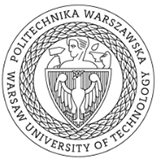
Warsaw University of Technology
-
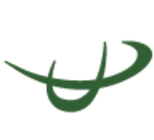
Poznan University of Life Sciences
-
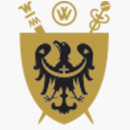
Wroclaw Medical University
-

Nicolaus Copernicus University
-
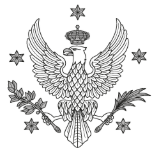
University of Warsaw
-
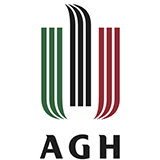
AGH University of Science and Technology
-

Silesian University of Technology
-
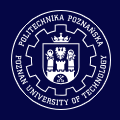
Poznan University of Technology
-

Jagiellonian University
-
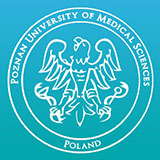
Poznan University of Medical Sciences
-

Mesoamerican University
-

Istmo University
-

Mariano Galvez University of Guatemala
-

Regional University of Guatemala
-

Galileo University
-

Francisco Marroquín University
-

Rafael Landívar University
-

University of the Valley of Guatemala
-

University of San Carlos of Guatemala
-

Technological Institute of Tlaxcala Plateau
-

Golfo University
-

Technological University of South Sonora
-

Technological University of Huejotzingo
-

Tizimín Institute of Technology
-

Chilpancingo Institute of Technology

